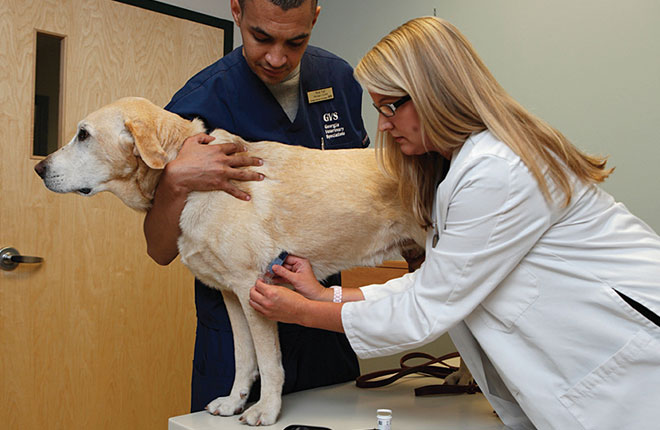Common Health Issues in Pets and How to avoid Them Efficiently
Common Health Issues in Pets and How to avoid Them Efficiently
Blog Article
Understanding Your Family Pets' Nutritional Requirements for Optimal Well-being

Importance of Well Balanced Diet Regimens
Guaranteeing a balanced diet plan for pets is essential for their total wellness and health. Family pets, like people, need a blend of healthy proteins, carbs, minerals, vitamins, and fats to preserve ideal health and wellness.
Incorporating a variety of nutrients guarantees that pets maintain a durable immune system, healthy skin, and a shiny coat. Additionally, a balanced diet plan can protect against a host of wellness concerns such as weight problems, which is connected to diabetes mellitus and joint problems, or malnutrition, which can result in developmental hold-ups and body organ disorder.
Pet dog owners need to be conscious of section sizes and caloric intake, as overfeeding or underfeeding can have major consequences. Consulting with vets or pet dog nutritional experts can aid customize diet regimens to fulfill certain requirements, making certain that animals get the proper balance of nutrients essential for their dimension, activity, and age level. A regular and well balanced diet regimen is crucial for a pet's durability and happiness.
Species-Specific Nutritional Needs
Exactly how do various varieties of animals have differing dietary needs? This concern highlights the necessity for a tailored technique to feeding our animal friends. Each types has one-of-a-kind metabolic paths, digestive system systems, and dietary requirements that have to be met for optimal health. Pet dogs are omnivores, requiring a well balanced diet of fats, healthy proteins, and carbs, while felines, as obligate predators, require a greater healthy protein intake derived mostly from animal sources.
Birds, relying on their species, may require a diet rich in fruits, seeds, or insects, emphasizing the diversity within the avian globe. Pets. Reptiles, such as turtles and snakes, similarly need species-specific diet plans, with some requiring high levels of calcium and others, a well-calibrated equilibrium of bugs and plant issue
Understanding the dietary distinctions amongst various varieties is essential for pet dog proprietors. By catering and recognizing to these differences, we make certain the provision of correct nourishment, sustaining the general wellbeing and vitality of our animals.
Age and Size Factors To Consider
While species-specific nutritional needs lay the structure for an animal's size, diet and age additional improve these needs. Young animals, such as kittycats and puppies, require diets rich in calories, healthy proteins, and important nutrients to sustain quick development and development. These young creatures have higher metabolic rates and call for more constant feedings to maintain their energy degrees and make certain proper development of organs, bones, and muscular tissues.
As animals age, their nutritional demands transform dramatically. Grown-up pets commonly require fewer calories than their more youthful counterparts however still need a balanced diet regimen to keep overall health and wellness and vitality. Solutions designed for grown-up pet dogs often concentrate on maintaining weight, promoting digestion health and wellness, and sustaining an energetic lifestyle. Alternatively, elderly pet dogs may benefit from specialized diet regimens that attend to age-related obstacles, such as joint wellness, cognitive feature, and organ support.

Health Conditions and Dietary Adjustments
Particular health conditions can dramatically affect the dietary requirements of animals, necessitating customized dietary adjustments to support their well-being. As an example, animals with diabetes mellitus might gain from diets that are high in fiber and reduced in straightforward carbs to assist control blood sugar levels. In a similar way, obese animals often need reduced-calorie diet plans to promote weight reduction and protect against involved health problems.
Pet dogs with kidney illness might call for diet plans reduced in phosphorus and protein to relieve kidney work. Omega-3 fats, recognized for their anti-inflammatory residential properties, can be valuable for pets dealing with problems like arthritis or inflammatory digestive tract illness. Furthermore, family pets with food allergic reactions or intolerances may require hypoallergenic diet plans, usually requiring a process of removal to determine and exclude upseting active ingredients.
Vet guidance is critical when making nutritional changes, as inaccurate nutrition can intensify existing illness or cause brand-new ones. Regular surveillance and adjustments based upon the pet's feedback to nutritional adjustments are essential. A well balanced strategy, thinking about both nutritional and clinical needs, guarantees that dietary interventions add favorably to handling health and wellness problems, enhancing not only the animal's wellness yet additionally their lifestyle.
Tips for Finding High Quality Animal Food
Picking the appropriate animal food is essential for guaranteeing your animal's wellness and longevity. A well balanced diet regimen sustains their immune system, keeps healthy weight and promotes general vitality. Begin by consulting your vet to recognize your pet dog's particular dietary requirements based on breed, health and wellness, and age standing.
When evaluating pet food, scrutinize the component listing. Premium family pet foods commonly detail actual meat, fowl, or fish as the key ingredient.
Check for the Organization of American Feed Control Officials (AAFCO) statement on the packaging. This indicates the food meets recognized nutritional standards. Additionally, study the maker's track record. Brand names with a history of recalls or low quality control need to be approached with caution.
Take into consideration whether your animal would benefit from unique formulas such as grain-free, high-protein, or limited-ingredient diet plans. These can be advantageous for family pets with allergic reactions or specific health and wellness problems.
Final Thought
An extensive understanding of family pets' nutritional requirements is critical for advertising their ideal well-being. By sticking to these principles, animal owners can significantly contribute to their family pets' development, power degrees, and total health and wellness, cultivating a better and healthier life.

Picking the ideal animal food is essential for ensuring your pet dog's wellness and longevity. By adhering to these concepts, pet proprietors can considerably add to their family pets' growth, energy levels, and general health and wellness, cultivating a better and healthier life.
Report this page